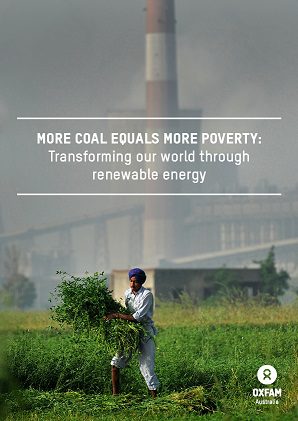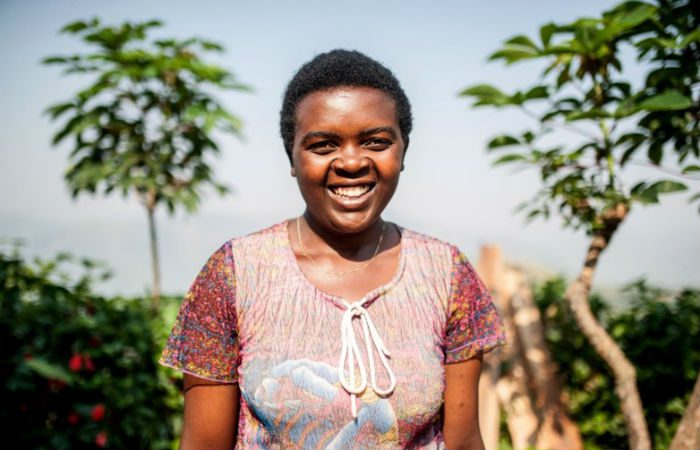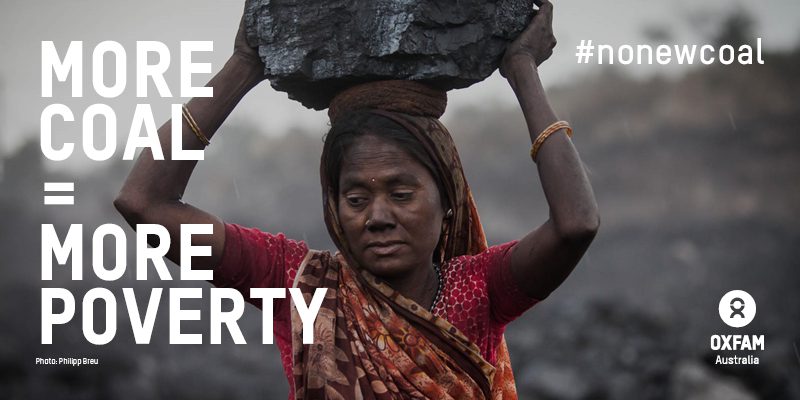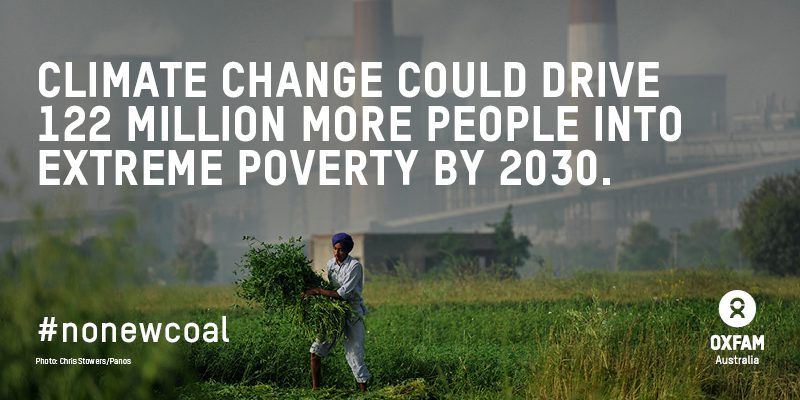Coal and poverty
More coal = more poverty
Right now, coal polluters like Adani are threatening to push millions of people into deeper poverty.
And the Australian Government is backing them all the way by aggressively pushing expanded coal exports and failing to curb Australia’s own pollution. Even worse, some politicians are spinning a dangerous and deceptive story to the Australian community that fails to reflect the reality for millions of people living in poverty.
We know, through our life-changing work globally, that the best way to tackle poverty and climate change is to scale up clean, renewable energy and stop burning dirty, polluting coal.
Read the report More Coal Equals More Poverty

Coal can kill
The real, human cost of burning more coal is measured in public health catastrophes and life-shattering humanitarian disasters.
The catastrophic damage caused by coal and climate change has become a matter of survival for families living in the world’s poorest communities. Burning coal remains the single biggest contributor to climate pollution. More intense droughts, floods and tropical cyclones are destroying people’s homes and leaving many families facing food and water shortages. And the world’s poorest people are being hit hardest. In East Africa, almost 11 million people are dangerously hungry due to a catastrophic drought that has been compounded by climate change.
Climate change, fuelled by coal pollution, could drive a staggering 122 million more people into extreme poverty by 2030. There is no space for new coal.
Burning coal is a public health disaster. Families living close to dirty coal mines and coal-fired power plants are literally being choked. Worldwide, the air pollution from burning coal is responsible for hundreds of thousands of premature deaths and millions of asthma cases. In some places, families have been forced from their homes by coal polluters and their operations.
Powering up against poverty with clean energy
At the same time, people around the world are working together to create a fairer, brighter future. People in some of the world’s poorest communities are the ones lighting the way forward with smart climate solutions. China and India are forging ahead with ambitious plans for large-scale energy solutions powered by the sun and the wind. The countries most vulnerable to the brutal impacts of climate change, including our Pacific Island neighbours, are displaying extraordinary vision and leading the way with bold commitments to real climate action.

Read our 2015 report Powering up Against Poverty
It’s time Australia stood up and followed their lead. This year the government is reviewing Australia’s climate and energy policies. So it has the opportunity right now to get serious with a real plan of action. This means a commitment to:
- No new coal mines in Australia, including Adani’s disastrous proposal
- Ending Australia’s climate pollution
- Tackling poverty and funding renewable energy solutions, here and overseas
It’s time for our political leaders to stop the greedy coal polluters from destroying people’s lives.
It’s time for us all to power up against poverty and create a brighter, fairer world.
Share
The coal-hard facts about coal and poverty:

